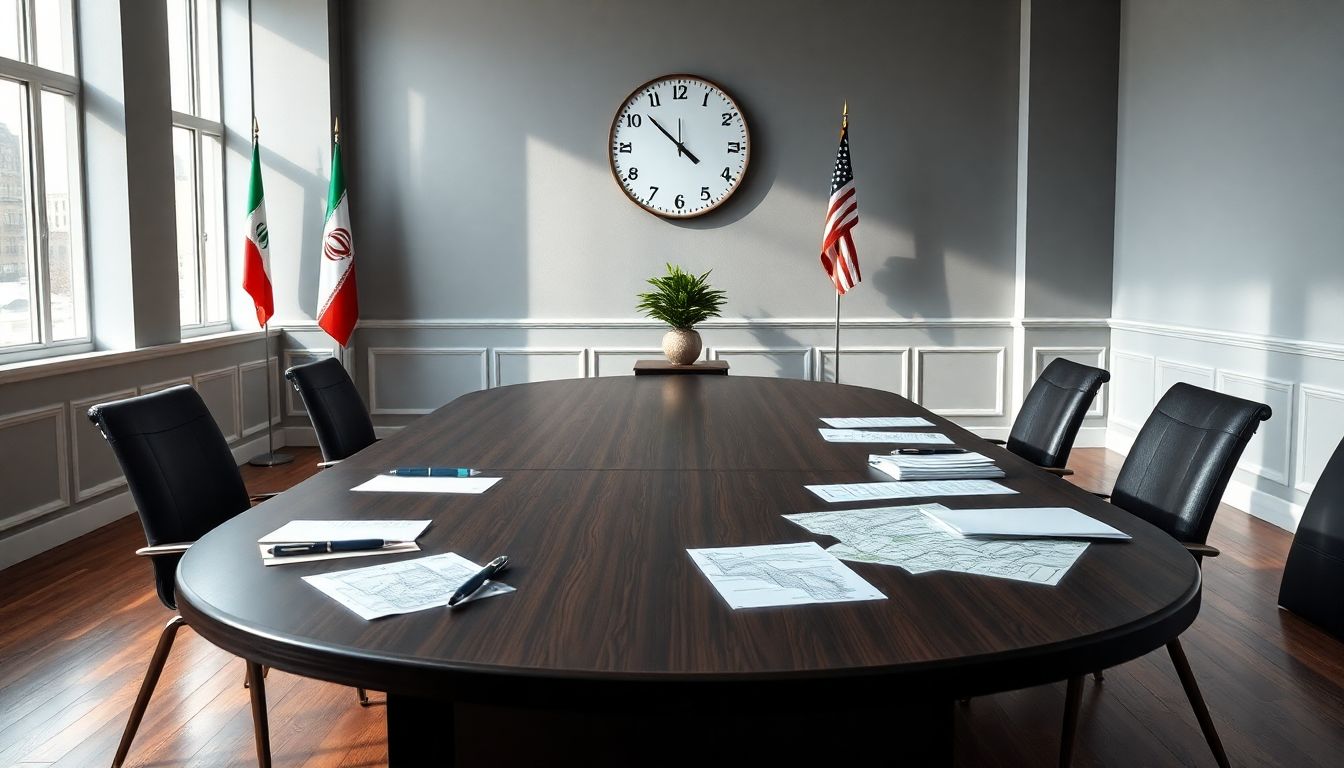Table of Contents
The landscape of international diplomacy can often feel like a chess game, where every move counts and the stakes are incredibly high. Right now, all eyes are on the possibility of renewed negotiations between Iran and the United States concerning Iran’s nuclear program. But let’s be real: this situation is anything but straightforward. Following some recent military actions by the U.S., the dynamics have shifted significantly, leaving everyone wondering what the next steps might be. In this article, we’ll unpack the current state of affairs, explore the implications of these events on potential diplomatic engagements, and take a look at the broader geopolitical context.
How Military Actions Shape Diplomatic Efforts
Recent military interventions—especially the U.S. strikes targeting key Iranian sites—have thrown a wrench into the works when it comes to diplomatic negotiations. Iran’s Foreign Minister, Abbas Araghchi, has openly admitted that these actions have made dialogue more complicated. No clear agreements have emerged to resume discussions, and the atmosphere in Iran has become charged with caution. Leaders there are now more hesitant to engage in conversations that might seem like concessions. Have you ever tried to talk through a disagreement only to feel like the other person is holding all the cards? That’s a bit like where Iran finds itself today.
The rhetoric surrounding these military actions has also ramped up the tension. Iranian leaders, including Supreme Leader Ayatollah Ali Khamenei, have painted a picture of conflict as a kind of victory. This attitude complicates the diplomatic narrative even further. With the shadows of the 2015 nuclear deal still looming—an agreement that fell apart after the U.S. withdrew under President Trump—it’s clear that future negotiations will require a deft touch to navigate both internal pressures and external expectations.
Given these developments, the willingness of both parties to engage in meaningful dialogue is questionable. The absence of a clear timeline or commitment to talks from either side adds to the uncertainty, making it feel like we’re on the brink of escalation rather than resolution. What do you think it would take to break this deadlock?
Understanding the Broader Geopolitical Landscape
The consequences of U.S. military actions reach far beyond Iran’s nuclear ambitions; they ripple through the entire Middle Eastern region. Iran’s response—firing over 550 ballistic missiles at Israel—highlights the fragile balance of power in the area. While such military displays are meant to project strength, they also heighten the risk of further conflict. Does this feel like a game of brinkmanship to you?
As these events unfold, the international community is watching closely. The reactions of external powers to U.S. actions could significantly influence Iran’s approach to negotiations. With the potential for new alliances or shifts in existing ones, the diplomatic landscape is anything but stable. In this intricate web of relationships, the stakes couldn’t be higher, and the need for a careful, strategic approach is more crucial than ever.
As we keep our eyes on the situation, the focus will likely turn to the impact of these ongoing military actions on Iran’s nuclear capabilities. Reports indicate that critical sites have suffered significant damage, raising questions about the future of Iran’s nuclear program and whether it can enter negotiations from a position of strength. What do you think this means for the future?
Looking Ahead: What’s Next for Iran-U.S. Relations?
As we gaze into the future, one question looms large: what lies ahead for Iran-U.S. relations? The potential for renewed negotiations is there, but it hinges on several factors, including the resolution of military tensions and the political will from both sides to engage in constructive dialogue. It’s a delicate balancing act, especially for Iranian leaders who must weigh the expectations of their constituents against the realities of international diplomacy.
In conclusion, the road to renewed negotiations is riddled with challenges. While recent military actions have complicated the landscape, they also present an opportunity for both sides to reassess their positions. As we navigate this intricate geopolitical terrain, prioritizing dialogue and understanding is vital for achieving a lasting resolution. What steps do you think should be taken to foster a more peaceful dialogue?


